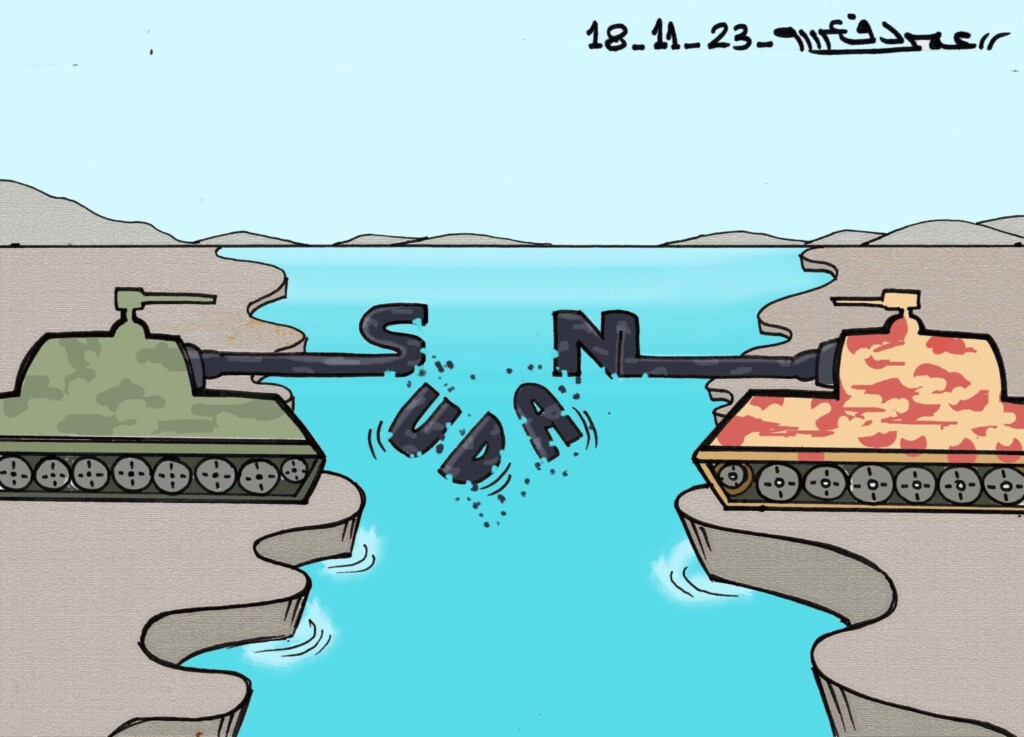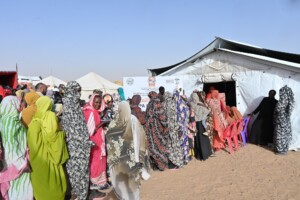Op-Ed: Searching for peace amid Sudan’s year of war

The war between the army and the RSF is dividing Sudan (Cartoon by Omar Dafallah / RD)
A year into the conflict engulfing Sudan, questions loom over the practicability of the protracted war and its immeasurable toll on the nation. Amidst the ineffable uncertainty, Sudanese people question whether peace remains attainable or if the nation is plunging towards an even more volatile future. As negotiations stutter, political experts and advocates offer their perceptions into the country’s perilous condition.
“The worst year in the history of Sudan”
Amjad Farid
Describing the past year as Sudan’s bleakest era in recent memory, Amjad Farid, director of the Sudanese Fikra for Studies and Development, paints a grim portrait of the conflict.
He denounces the war as a power struggle between a “corrupt state apparatus and a fascist militia”, highlighting its harmful impact on Sudan’s security and stability.
Despite calls for peace, Farid bemoans the dearth of political resolve from both sides to end the carnage, advocating to end “the institutional presence of the Rapid Support Forces (RSF) militia with all its military, economic, and political supplies.”
Adding that, this “should end in the best way for Sudan, by defeating the two warring parties by forcing the Sudanese Armed Forces (SAF) to repair its situation and reform the state situation”.
Regarding recent dialogue among Sudanese politicians in Paris, Farid stresses the significance of all-inclusive discussions in stopping the war, to prioritise humanitarian relief.
He warns against allowing “any faction to monopolise the country’s civil voice”, asserting that ending the current conflict must precede any political processes.
“There are no signs of stopping the war”
Mohamed Hereika
Echoing concerns over Sudan’s future, journalist and political analyst Mohamed Hereika emphasises the absence of concrete headway towards peace.
“The lack of a clear plan means that Sudan is going towards the unknown and at an accelerated pace,” the analyst states in his interview with Radio Dabanga.
Hereika observes a stubborn determination from warring factions to prolong the conflict, despite the numerous initiatives.
Drawing parallels with Sudan’s past, he warns of the dire consequences of continued violence, lamenting the loss of infrastructure and human potential.
Lamenting the loss of infrastructure and human potential, Hereika says “eventually peace will occur but after the destruction of the state’s capabilities, the loss of all its infrastructure, and its educational future, just as we lost our agricultural and human capabilities”.
Hereika underscores the urgent need for negotiations, citing previous peace agreements as prospective models.
As Sudan traverses through its year of havoc, the pursuit for peace remains elusive, dwarfed by the menace of unrelenting war.











 and then
and then